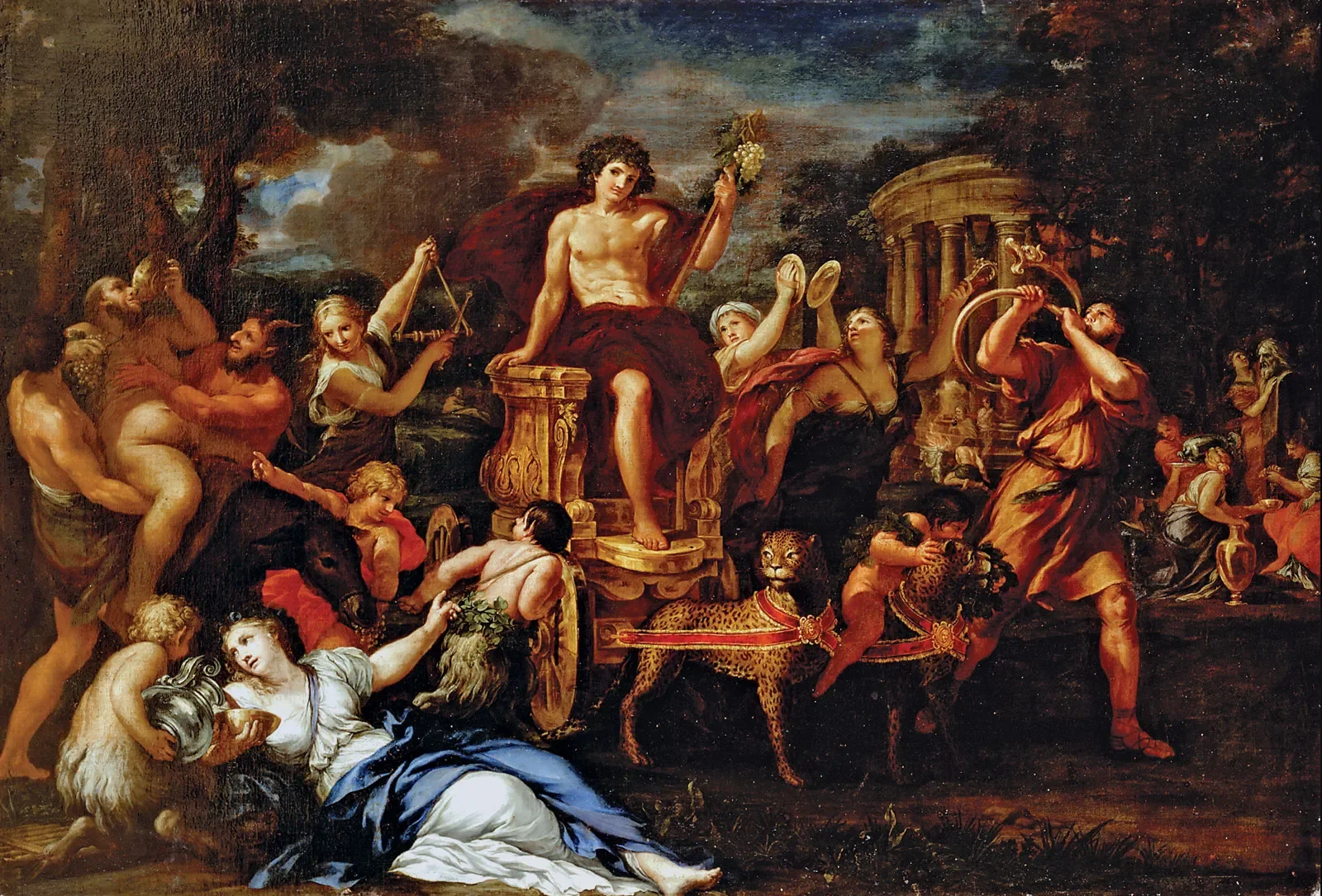Dionysus, known to the Romans as Bacchus, was the Greek god of wine, fertility, theater, and ritual madness. His worship stood out among the Olympian deities for its emotional intensity, ecstatic rituals, and deep connection to transformation.
According to myth, Dionysus was born from a mortal woman, Semele, and Zeus. After Semele's death, Zeus saved the unborn Dionysus by sewing him into his thigh, from which he was later born, a symbol of his dual nature and rebirth.
Dionysian cults often included processions, dances, and the consumption of wine. The Dionysia festivals, particularly the City Dionysia in Athens, played a crucial role in the development of Greek theater. Tragedies and comedies performed during these festivals became foundational to Western drama.
The Dionysian Mysteries, secretive rituals that promised personal salvation and communion with the divine, attracted both commoners and elites. Despite being viewed with suspicion by authorities at times, the cult of Dionysus remained influential throughout the Hellenistic and Roman periods.
Dionysus embodies paradox: joy and chaos, creation and destruction, liberation and frenzy. His worship reflected the human yearning for transcendence and emotional release.







